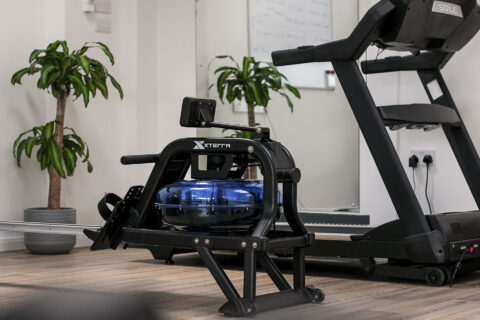It was George Bernard Shaw who originally inspired the phrase, ‘Youth is wasted on the young.’ And it is only as you get older that you really understand the sentiments behind this well-used phrase.
As a child and teenager, your body is very forgiving. You may abuse fast food and too much sugar. As you leave your teens and enter your early twenties, that abuse may take the shape of something more intoxicating. Finishing work on a Friday night, knowing that you have two days of partying and pleasure ahead of you, was the most important thing in the world at that age.
Then you reach the age of settling down and bringing up your own family, and your body starts to be a little less forgiving.
Having children, working long hours, worrying about money and mortgages… you know that you have to eat better and work out more, so you join a gym, cut the wine Monday to Thursday, and endeavour to eat as clean as possible. Still, as the years tick by, your waistband feels ever tighter – until one day you look at yourself in the mirror and can no longer deny that the middle age spread has done just that – spread, and too far!
Why do you gain weight as you age?
It’s too easy to blame ‘metabolism’. Although this does slow as you get older, it is only a tiny contributory factor. Too much emphasis is placed on metabolism in the mainstream media, which in fact, doesn’t do you any justice as it disempowers you. It takes away the overall sense of agency that you need to exert over your own body.
In reality, the weight gain is down to a perfect storm of a number of different factors.
Fluctuating activity levels
One factor is that you are probably moving less than you realise. Life has a habit of becoming quite sedentary as we spend more and more time in front of computer screens, TV screens, and phone screens.
As you gain weight, movement becomes more cumbersome, so in conjunction with moving less, you start to lose confidence as well, and you end up getting caught in a downward spiral.
Getting back into activity doesn’t have to mean signing up at the local gym and pounding the treadmills. In fact, it could be damaging, putting you at risk of injury, especially if you have not exercised properly for a while.
Regaining fitness as you get older is more about rebuilding muscle strength, gentle but consistent movement, and working on your posture. Over the years, our posture, whether standing, sitting, or walking, changes to compensate for any injuries we may have had, or the lifestyle we follow, or simply to alleviate aches and pains. Gentle exercises involving movements based around your posture will do far more than spending 30 minutes pounding a treadmill.
Gaining weight in menopause
Women do differ greatly from men in terms of why and how they gain weight as they get older. From dealing with decades of menstruation, then the process of pregnancy and childbirth, women then move into the menopause stage, which for many can be brutal.
Why do you gain weight in menopause? It seems so unfair, particularly if you have looked after yourself over the years, eating well, exercising regularly. Then you hit your fifties, and suddenly your body seems to have taken on a life of its own, and everything you used to do to keep a check on your weight no longer works.
Hormones play a huge part in how your body converts energy. Add to this a decrease in muscle mass, hot flushes, insomnia and increasing anxiety – all combine to erode self-esteem, which can be a huge barrier to a woman getting back on track again.
Gaining weight in menopause is often an external manifestation of the inner turmoil a woman goes through as she traverses this ‘change’. Seeing the ‘change’ exactly as that, a transition process will help to shift a mindset back into regaining a sense of power and control over their body.
What can I do to stop the weight gain?
For both men and women, there are three things you need to consider as you get older.
- Accept that your body is changing. You cannot stop the fact that you are getting older and that your body will be changing. Your fifty-something self will be different to your twenty-something self, and there is no point focusing on a moment in time that is gone.
- Accept that you are going to have to make some radical lifestyle changes. For women particularly, as you get older, your body processes food in a different way. Embrace the challenge rather than see it as ‘giving something up’. This is part of the metamorphosis that you are going through that will see you enter the next stage of your life feeling fit and healthy!
- Forget exercising. Think instead in terms of movement. Try and move through your day – sometimes with more energy and determination, at other times more gently and serenely. As long as you’re moving, that is the most important thing!
Here at Be You, we have supported hundreds of men and women in tackling the weight that they have gained during these middle years. We offer a safe, private space in which not only do people work on their posture and movement but also rebuild their flagging self-esteem and find their lost confidence.
If you’re struggling with your weight gain in menopause or simply want to understand more about why you are gaining weight as you get older and want to tackle it before it gets too bad, then book in for an informal chat. Simply go to our booking page and scroll down to ‘initial consultation’.









